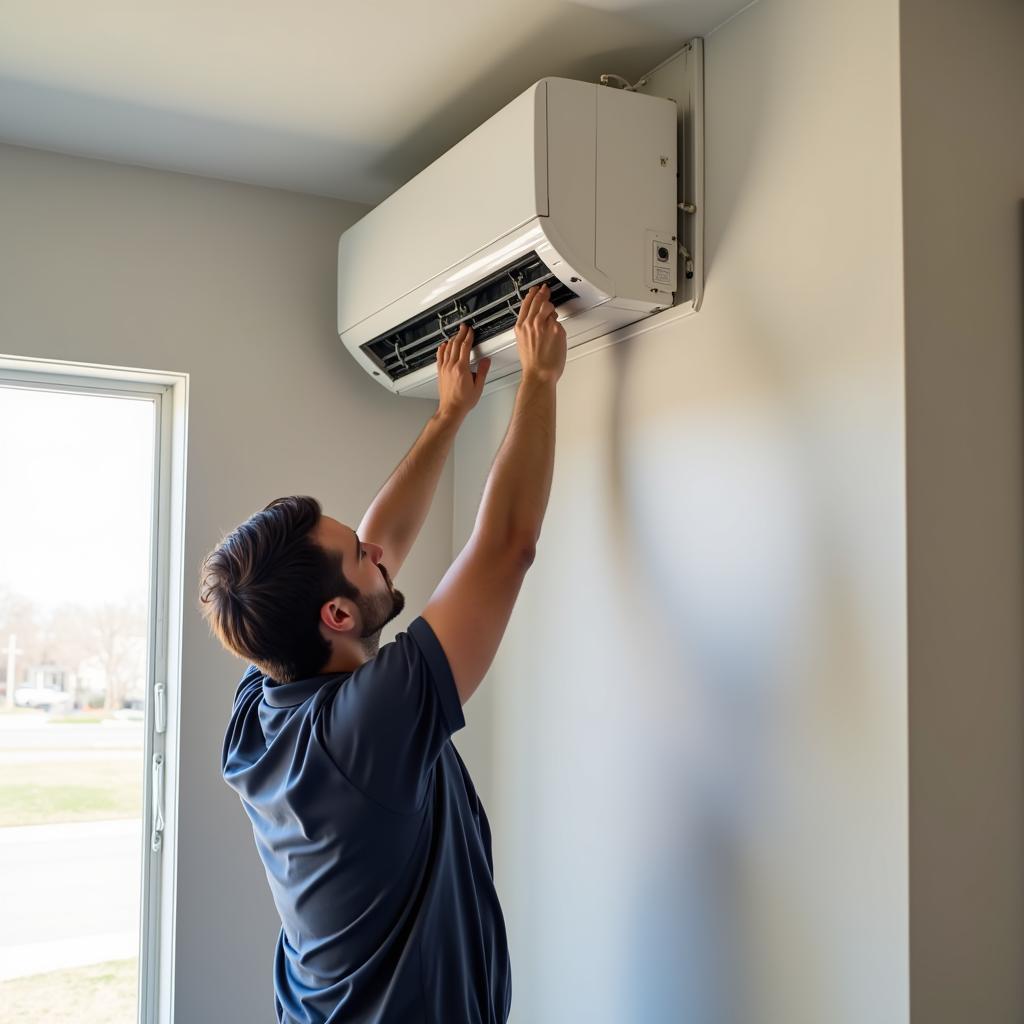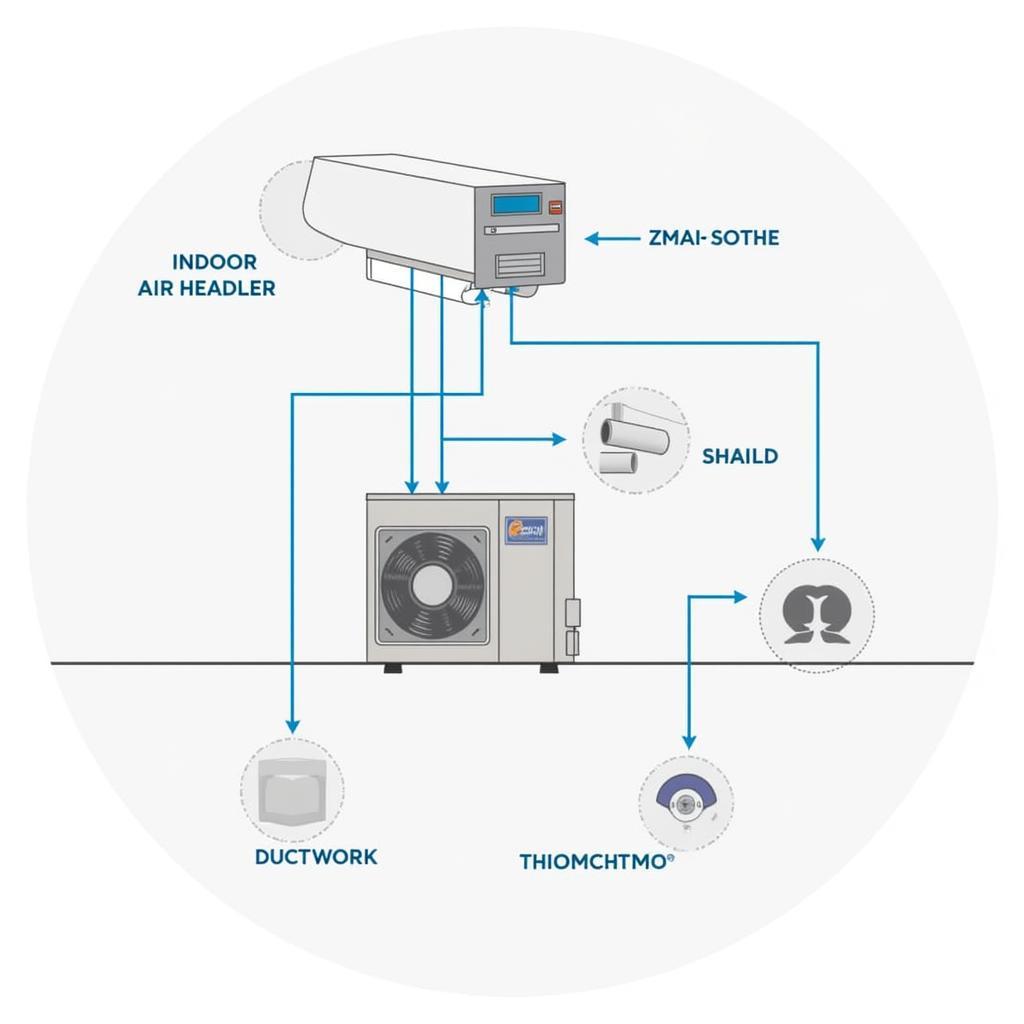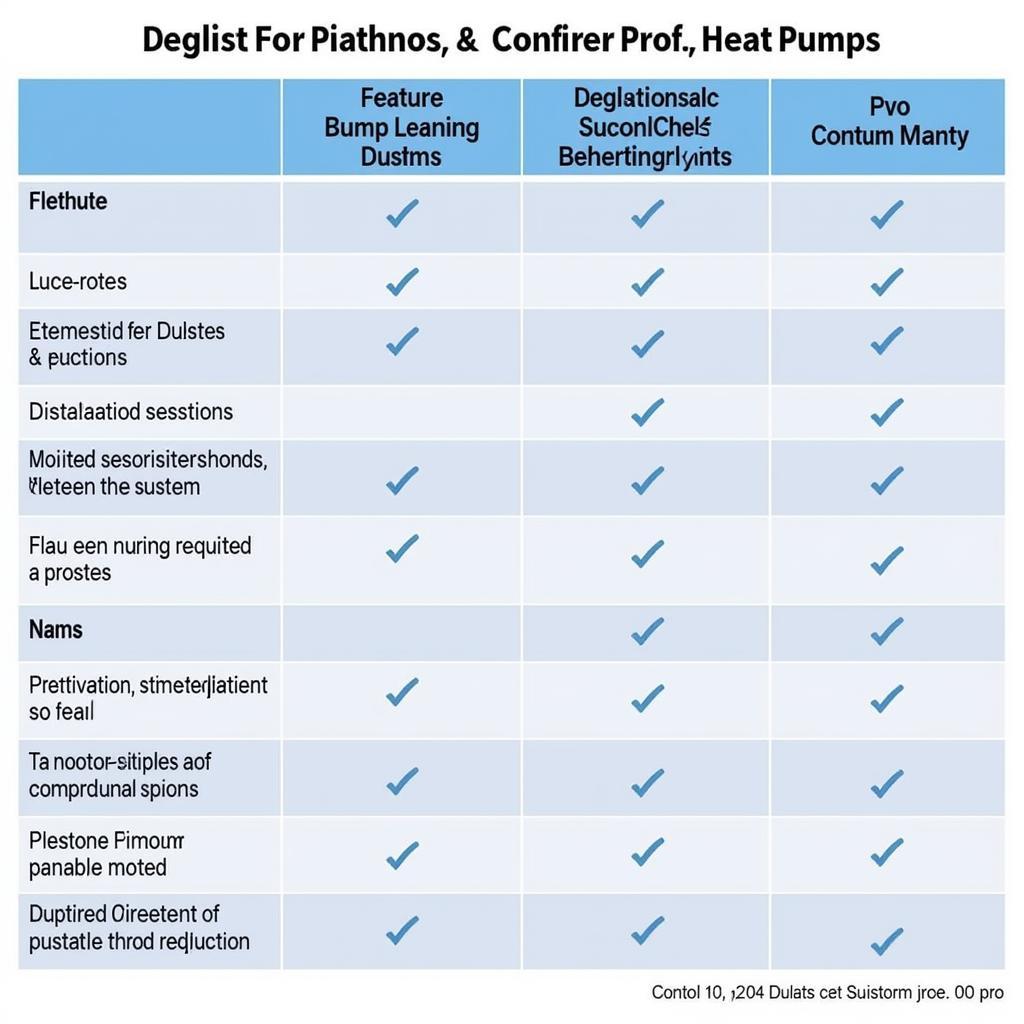Choosing between a ductless heat pump and a ducted heat pump is a big decision for any homeowner. Both systems offer energy-efficient heating and cooling, but they differ in their installation, cost, and overall performance. This comprehensive guide will break down the pros and cons of each system, helping you make the best choice for your needs and budget.
Understanding the Basics: How Heat Pumps Work
Before we delve into the differences, let’s first understand the basic mechanism of a heat pump. Unlike traditional furnaces that generate heat by burning fuel, heat pumps utilize electricity to transfer heat from one place to another.
In the winter, a heat pump extracts heat from the outside air, even in cold temperatures, and transfers it indoors to provide warmth. Conversely, in the summer, it reverses the process, extracting heat from the indoor air and releasing it outdoors, effectively cooling your home.
Ductless Heat Pumps: Flexibility and Efficiency
 Ductless Heat Pump Installation
Ductless Heat Pump Installation
Ductless heat pumps, also known as mini-splits, are becoming increasingly popular due to their flexibility and energy efficiency. They consist of two main components: an outdoor unit and one or more indoor units. These units are connected through a small conduit that houses refrigerant lines and electrical wiring.
Here are some key advantages of ductless heat pumps:
- Easy Installation: Ductless systems are relatively easy to install, requiring only a small hole in the wall to connect the indoor and outdoor units. This makes them ideal for homes without existing ductwork or for adding climate control to specific rooms.
- Energy Efficiency: Ductless heat pumps are highly energy-efficient, as they eliminate energy losses associated with ductwork. They can significantly reduce your heating and cooling costs compared to traditional systems.
- Individualized Temperature Control: With multiple indoor units, ductless systems allow you to set different temperatures for different rooms, providing customized comfort and reducing energy waste.
- Improved Indoor Air Quality: Many ductless units come equipped with advanced filters that remove dust, allergens, and other pollutants from the air, improving indoor air quality.
However, ductless heat pumps also have some drawbacks:
- Aesthetics: The indoor units are wall-mounted and may not blend seamlessly with all interior designs.
- Limited Heating Capacity in Cold Climates: While ductless heat pumps have improved in recent years, they may struggle to provide adequate heat in extremely cold climates.
- Higher Upfront Cost: Ductless systems typically have a higher initial cost compared to traditional systems, especially if you need multiple indoor units.
Ducted Heat Pumps: Whole-House Comfort and Consistent Heating
 Ducted Heat Pump System
Ducted Heat Pump System
Ducted heat pumps operate similarly to ductless systems but utilize existing ductwork to distribute conditioned air throughout the house. This makes them a suitable option for homeowners with existing ductwork in good condition.
Let’s explore the advantages of ducted heat pumps:
- Whole-House Comfort: By using existing ductwork, ducted systems provide even heating and cooling throughout the entire home, eliminating temperature inconsistencies.
- Consistent Heating in Cold Climates: Ducted heat pumps are generally more effective than ductless systems in extremely cold climates, as the ductwork helps distribute heat more evenly.
- Integrated Air Filtration: With a whole-house air filter installed in the ductwork, ducted systems can improve indoor air quality throughout your home.
- Potentially Lower Upfront Cost: If your home already has ductwork, installing a ducted heat pump can be more affordable than installing a ductless system.
However, ducted heat pumps also have some disadvantages:
- Ductwork Issues: If your existing ductwork is old, leaky, or poorly insulated, it can significantly reduce the efficiency of a ducted heat pump.
- Less Individualized Control: Ducted systems typically offer less precise temperature control compared to ductless systems, as you cannot set different temperatures for individual rooms.
- Potential for Noise: The sound of air moving through the ducts can sometimes be noticeable, particularly with older ductwork.
Making the Right Choice: Factors to Consider
 Comparing Ductless and Ducted Heat Pumps
Comparing Ductless and Ducted Heat Pumps
Choosing between a ductless and a ducted heat pump depends on your individual circumstances and priorities. Here are some key factors to consider:
- Existing Ductwork: The presence or absence of existing ductwork plays a significant role in your decision. If you have ductwork in good condition, a ducted system might be a cost-effective option. However, if you don’t have ductwork, installing a ductless system will be less disruptive and potentially more efficient.
- Climate: Consider your local climate. If you live in an area with extremely cold winters, a ducted heat pump might be a better choice for consistent heating.
- Budget: Assess your budget and weigh the upfront cost against potential long-term energy savings.
- Aesthetics: Think about your aesthetic preferences and how the indoor units of a ductless system would fit into your home’s design.
Conclusion
Both ductless and ducted heat pumps offer significant advantages in terms of energy efficiency, comfort, and environmental friendliness. Ultimately, the best choice depends on your specific needs and circumstances. Carefully consider the factors outlined in this guide, and consult with a qualified HVAC professional to determine the optimal solution for your home.
FAQs
Q: What is the lifespan of a heat pump?
A: With proper maintenance, heat pumps can last 15-20 years.
Q: Are heat pumps noisy?
A: Modern heat pumps are designed to operate quietly, especially the indoor units.
Q: Do I need a separate air conditioner with a heat pump?
A: No, heat pumps provide both heating and cooling functions.
Q: Can I install a heat pump myself?
A: It’s recommended to hire a qualified HVAC technician for proper installation.
Q: What is the average cost of a heat pump installation?
A: The cost varies widely depending on the type, size, and complexity of the installation.
Need Expert Advice?
Contact us today for a free consultation! Our team of HVAC specialists at AI Bóng Đá (yes, we love football too!) can help you navigate the world of heat pumps and find the perfect solution for your home. Call us at 0372999888, email us at [email protected], or visit our office at 236 Cầu Giấy, Hà Nội. We are available 24/7 to assist you!